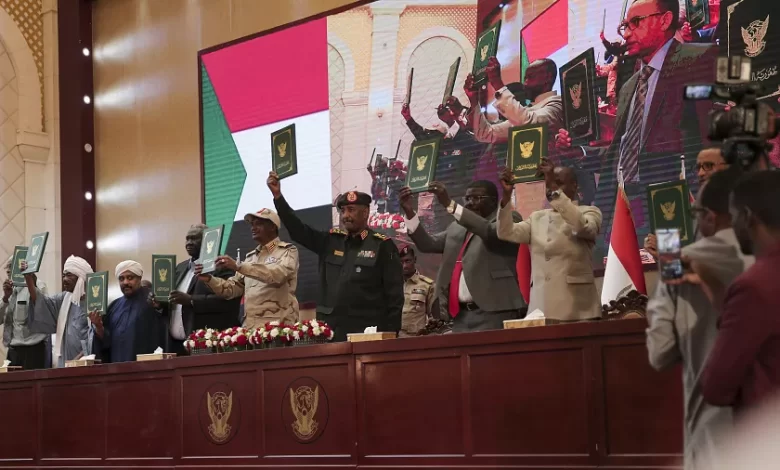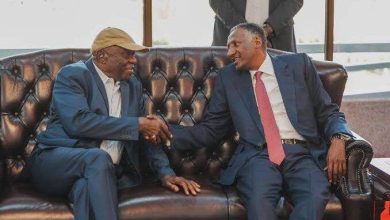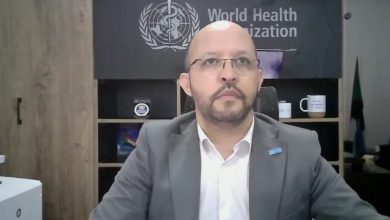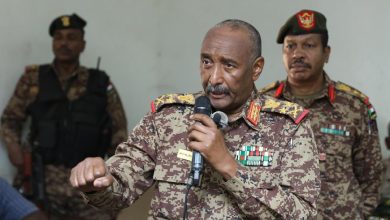A Civilian Transitional Authority in Sudan to be Taken Seriously 1-2

Solomon A. Dersso and Zekarias Beshah
Summarized by Sumaya Sayed
Almost three months into the fighting, there is no sign of the war in Sudan slowing down let alone ending. Each of the warring parties in Sudan, the Sudan Armed Forces (SAF) and the Rapid Support Forces (RSF), is locked in a logic for imposing its will by the barrel of the gun. The resultant entrenchment of the fighting is exacting enormous suffering on the Sudanese public and destruction on the state infrastructure.
Despite various diplomatic efforts involving regional and international actors and the announcement of about a dozen ceasefire initiatives or agreements, there is little to show for it. If anything, the approach of the peace and security and humanitarian diplomacy is aggravating the situation. It has bestowed legitimacy on the two warring parties. The singular focus of the efforts for ceasefire or humanitarian truce as well as peace mediation, as illustrated by the 12 June 2023 IGAD summit decision, is on the two parties, thereby inadvertently incentivizing the reinforcement of their respective positions.
Instead of any change of course, both the logic of the warring parties to achieve their objective through fighting and the glorification by the diplomatic processes of the two belligerents have set Sudan on a path for a protracted conflict with even more catastrophic risks it carries with it. There is as a result a present danger of the collapse of the Sudanese state.
Sudanese civic actors are the only ones that provide the Sudanese state and the international community the viable window for averting this present danger of state collapse and the accompanying apocalyptic consequences that are frightening to contemplate. These civic actors comprise diverse groups, including the neighborhood/resistance committee, professional associations, trade unions, political parties and local community formations. Distinguishing themselves from other civic actors in other countries, Sudanese civilian actors have displayed incredible level of organizational ingenuity, agility and resilience.
It was the peaceful protest and other civic actions that they mobilized that set the stage for the overthrow of the three decades dictatorial rule of Omar El Bashir in April 2019. While drawing on rich civic traditions, the non-violent movement waged by these actors, or what is referred to as the ‘December Revolution’, drew the participation of people from various walk of life, with women and youth taking active role in organization and leadership.
When the military sought to abort the revolution by declaring military rule for three years after seizing power by ousting Bashir in April 2019, it was the Sudanese civic actors that fought this illegal seizure of power and imposition of military rule. Despite violent crackdown by the SAF and the RSF, Sudanese civic actors did not opt for armed insurrection as was the case in Libya. They displayed firm commitment for peaceful resistance. As Susan Stigant pointed out, ‘any tensions among Sudanese civilians should not belie their near-unwavering unity on a foundational principle: A commitment to democratic politics and debate, however messy. That commitment stands in stark contrast with the persistent behavior of senior officials in the SAF and RSF, who use force indiscriminately to settle their differences.’
All these provided the basis for the African Union (AU), together with the then Chairperson of the Inter-Governmental Authority on Development (IGAD), supported by the US and gulf countries, to facilitate mediation for the establishment of a transitional process.
The power-sharing agreement this process produced with alteration of leadership of the Sovereign Council (the highest authority of the transitional power-sharing government) during an agreed 39-month period and legitimizing the military’s seizure of government power and active role in politics was the original sin that the international community committed. Seen as a pragmatic necessity, this arrangement ended up incentivizing the appetite of the SAF and the RSF to entrench their grip on power. Thus, just before transferring the role of heading the Sovereign Council to the civilian leadership of the power-sharing government as per the terms of the August 2019 Constitutional Declaration, the SAF and the RSF staged a coup and arrested Prime Minister Abdela Hamdok and his cabinet on 25 October 2021.
Once again it fell on the Sudanese civic actors to mobilize against the illegal usurpation of power by going to street with their legendary peaceful protests, forcing the military to engage in a shaky political process that aimed at resolving the standoff between protesters and the military. They even went as far as articulating a constitutional document. This time around, AU, IGAD and UN joined hands under a Trilateral Mechanism to facilitate the political process, but with the same strategy that is anchored on people with the guns. As in 2019, the political process resulted in the signing of a ‘Political Framework Agreement (PFA)’ on 5 December 2022 between the military and section of the civilian actors organized under Forces of Freedom and Change (FFC). The US and other members of the Quad (Saudi Arabia, UAE, and UK) were behind this agreement.
The PFA, lauded by its sponsors as the first step towards the restoration of a civilian-led government but greeted with opposition from the resistance committees, instead of putting Sudan on a footing for democratic dispensation, set the SAF and the RSF, the incompatibility of whose interests has grown increasingly deep, on a collision course. While seemingly engaging the trilateral process, they were preparing for a final showdown to settle their power contest. The Trilateral Mechanism was busy in convening workshops and consultations to facilitate the appointment of a new prime minister when the two generals, Al Burhan of SAF and RSF commander Dagalo, started fighting in Khartoum on 15 April.



